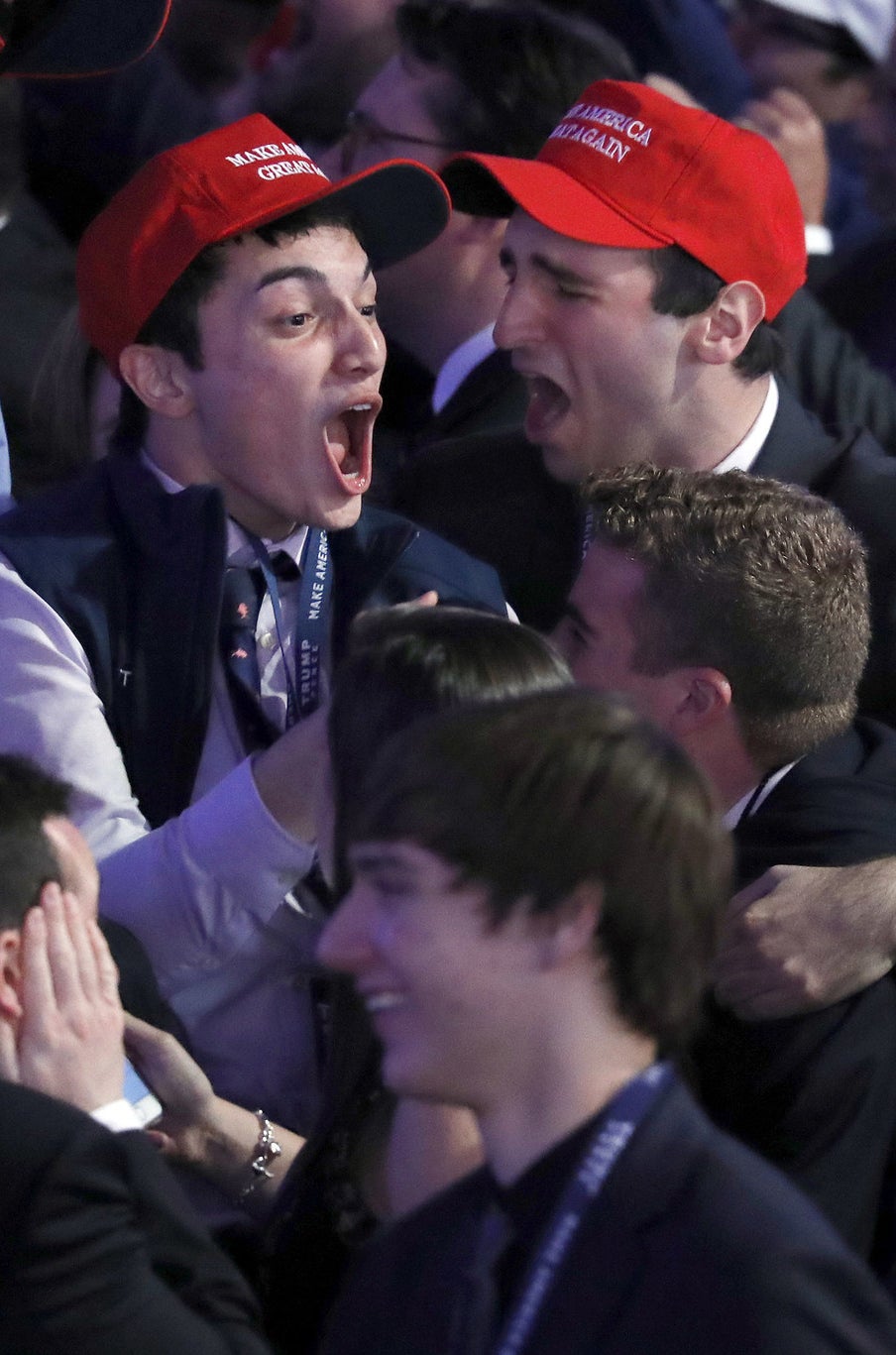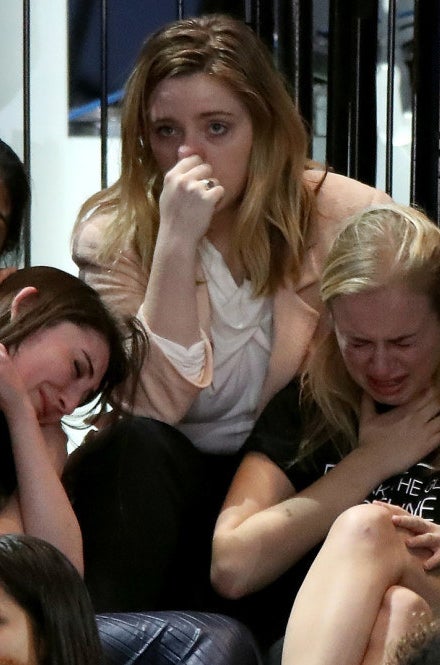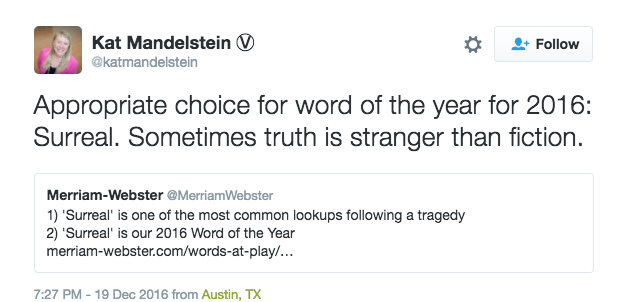Merriam-Webster's 2016 word of the year was "surreal" after it became the most common lookup following major world events including the Brussels terror attack, the coup attempt in Turkey, the Nice terrorist attack and the US election.
1) 'Surreal' is one of the most common lookups following a tragedy 2) 'Surreal' is our 2016 Word of the Year https://t.co/O7azAyRQC1
The dictionary's criteria in determining the word of the year is that the word must show a high volume of lookups and a significant year-over-year increase on the dictionary's website.
“Spikes of interest in a word are usually triggered by a single event, so what’s truly remarkable this year about surreal is that so many different stories led people to look it up,” Peter Sokolowski, Editor at Large for Merriam-Webster, said in a statement. “Historically, surreal has been one of the words most searched after tragedy, most notably in the days following 9/11, but it was associated with a wide variety of stories this year.”
The largest spike in lookups for "surreal" came after Donald Trump's win in the US election in November, the dictionary said.



"Surreal is often looked up spontaneously in moments of both tragedy and surprise, whether or not it is used in speech or writing," the dictionary said in a statement. "This is not surprising: we often search for just the right word to help us bring order to abstract thoughts, emotions, or reactions. Surreal seems to be, for 2016, such a word."
And most people agreed that 2016 was definitely "surreal."


The other top words of the year included:
Revenant
Icon
In Omnia Paratus
Bigly
Deplorable
Irregardless
Assumpsit
Faute de Mieux
Feckless
Merriam-Webster had appealed to users to look up other words after "fascism" was its top lookup in November.
'Fascism' is still our #1 lookup. # of lookups = how we choose our Word of the Year. There's still time to look something else up.
And some people still wondered why "fascism" didn't end up being the word of the year.

"Bigly" was the most looked-up word "that was never actually used," according to Merriam-Webster.
View this video on YouTube
Trump frequently used the phrase "big league" during his campaign, but his pronunciation of it caused many people to assume he was saying the word "bigly."
The word "deplorable" also saw a large spike in lookups after Hillary Clinton "used it an unusual way," the dictionary said, adding that her use of "deplorable" as a noun instead of an adjective may have prompted people to look it up.
Clinton had said in September that half of Trump's supporters — "the racist, sexist, homophobic, xenophobic, Islamophobic" — were in "the basket of deplorables."

